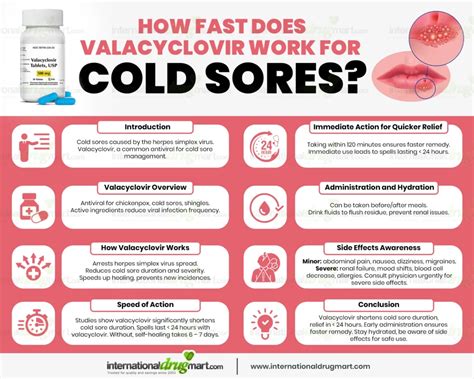S Cortisol Blood Test

Cortisol, often referred to as the “stress hormone,” plays a vital role in the body’s response to stress, regulating blood sugar levels, and aiding in the metabolism of fat, protein, and carbohydrates. A cortisol blood test is a diagnostic tool used to measure the levels of cortisol in the blood, helping healthcare providers to assess the functioning of the adrenal glands and diagnose various conditions related to cortisol imbalances.
Understanding Cortisol
Cortisol is produced by the adrenal glands, small endocrine glands located on top of each kidney. The production of cortisol is stimulated by the adrenocorticotropic hormone (ACTH), which is released by the pituitary gland, a small endocrine gland located at the base of the brain. The hypothalamus, another part of the brain, regulates the pituitary gland’s release of ACTH, creating a complex feedback loop that controls cortisol levels. Cortisol levels typically follow a circadian rhythm, peaking in the early morning and decreasing at night.
Why is a Cortisol Blood Test Conducted?
A cortisol blood test can be ordered for several reasons:
- Diagnosing Cushing’s Syndrome: This is a condition caused by having too much cortisol in the body. Symptoms include weight gain, particularly in the midsection, pink or purple striae on the skin, high blood pressure, and diabetes.
- Diagnosing Addison’s Disease: This condition is characterized by the adrenal glands not producing enough cortisol and aldosterone. Symptoms include fatigue, weight loss, low blood pressure, and changes in skin pigmentation.
- Diagnosing Adrenal Insufficiency: This condition occurs when the adrenal glands do not produce adequate amounts of cortisol and, in some cases, aldosterone. It can be primary (due to a problem with the adrenal glands themselves) or secondary (due to a problem with the pituitary gland or hypothalamus).
- Evaluating the Function of the Pituitary and Adrenal Glands: Abnormal cortisol levels can indicate issues with the pituitary or adrenal glands.
How is the Test Conducted?
The cortisol blood test is conducted in a healthcare provider’s office or in a laboratory. The process involves:
Preparing for the Test: Your healthcare provider may ask you to prepare for the test by not eating or drinking for a certain period before the test, although this is less common for a cortisol test. You should inform your provider about any medications you are taking, as some may interfere with the test results.
Drawing Blood: A blood sample is drawn from a vein, usually in the arm, using a needle attached to a tube. The area is cleaned with an antiseptic, and a tourniquet is applied to make the vein more visible. After the needle is inserted, a small amount of blood is collected in the tube, and the tourniquet and needle are removed.
Testing the Sample: The blood sample is then sent to a laboratory for analysis. The cortisol level is measured, and the results are compared to the normal range.
Interpreting Test Results
The normal range for cortisol levels in the blood can vary slightly depending on the laboratory but is typically considered to be between 5 and 23 micrograms per deciliter (mcg/dL) in the morning when cortisol levels are at their highest, and less than 5 mcg/dL in the evening.
- High Cortisol Levels: Can indicate Cushing’s syndrome, stress, pregnancy, or certain medications like oral contraceptives.
- Low Cortisol Levels: Can indicate Addison’s disease, adrenal insufficiency, or pituitary or hypothalamic dysfunction.
It’s essential to discuss your results with your healthcare provider, as they can provide a more accurate interpretation based on your medical history, symptoms, and the specific testing methods used.
Additional Testing
In some cases, a healthcare provider may order additional tests to confirm a diagnosis or to rule out other conditions. These can include:
- 24-Hour Urine Free Cortisol Test: Measures the amount of cortisol in the urine over a 24-hour period.
- Dexamethasone Suppression Test: Used to diagnose and differentiate causes of Cushing’s syndrome.
- ACTH Stimulation Test: Used to diagnose adrenal insufficiency and to differentiate between primary and secondary forms.
Conclusion
A cortisol blood test is a valuable diagnostic tool for assessing adrenal function and diagnosing conditions related to cortisol imbalances. Understanding cortisol’s role in the body and the implications of abnormal cortisol levels can help individuals better manage their health and make informed decisions about their care. By combining clinical evaluation with laboratory diagnostics, healthcare providers can develop targeted treatment plans to address cortisol-related disorders and improve patient outcomes.
Frequently Asked Questions
What does a high cortisol level indicate?
+A high cortisol level can indicate Cushing’s syndrome, stress, certain medications, or pregnancy among other conditions. It’s crucial to discuss high cortisol levels with your healthcare provider for proper interpretation and diagnosis.
How is cortisol regulated in the body?
+Cortisol regulation involves a complex feedback loop between the hypothalamus, pituitary gland, and adrenal glands. The hypothalamus stimulates the pituitary gland to release ACTH, which in turn stimulates the adrenal glands to produce cortisol. As cortisol levels rise, they signal the hypothalamus and pituitary gland to reduce ACTH production, thereby lowering cortisol levels.
What are the symptoms of adrenal insufficiency?
+Symptoms of adrenal insufficiency include fatigue, weight loss, low blood pressure, and changes in skin pigmentation. If you’re experiencing these symptoms, it’s essential to consult with a healthcare provider for proper diagnosis and treatment.
Can cortisol levels be managed through lifestyle changes?
+Yes, certain lifestyle changes can help manage cortisol levels. These include practicing stress reduction techniques like meditation or yoga, maintaining a healthy diet, getting regular exercise, and ensuring adequate sleep. However, if you have a diagnosed condition related to cortisol imbalance, you should work closely with your healthcare provider to develop a comprehensive management plan.
How long does it take to get the results of a cortisol blood test?
+The time it takes to get the results of a cortisol blood test can vary depending on the laboratory and the healthcare facility. Typically, results are available within a few days to a week after the sample is sent to the laboratory.



